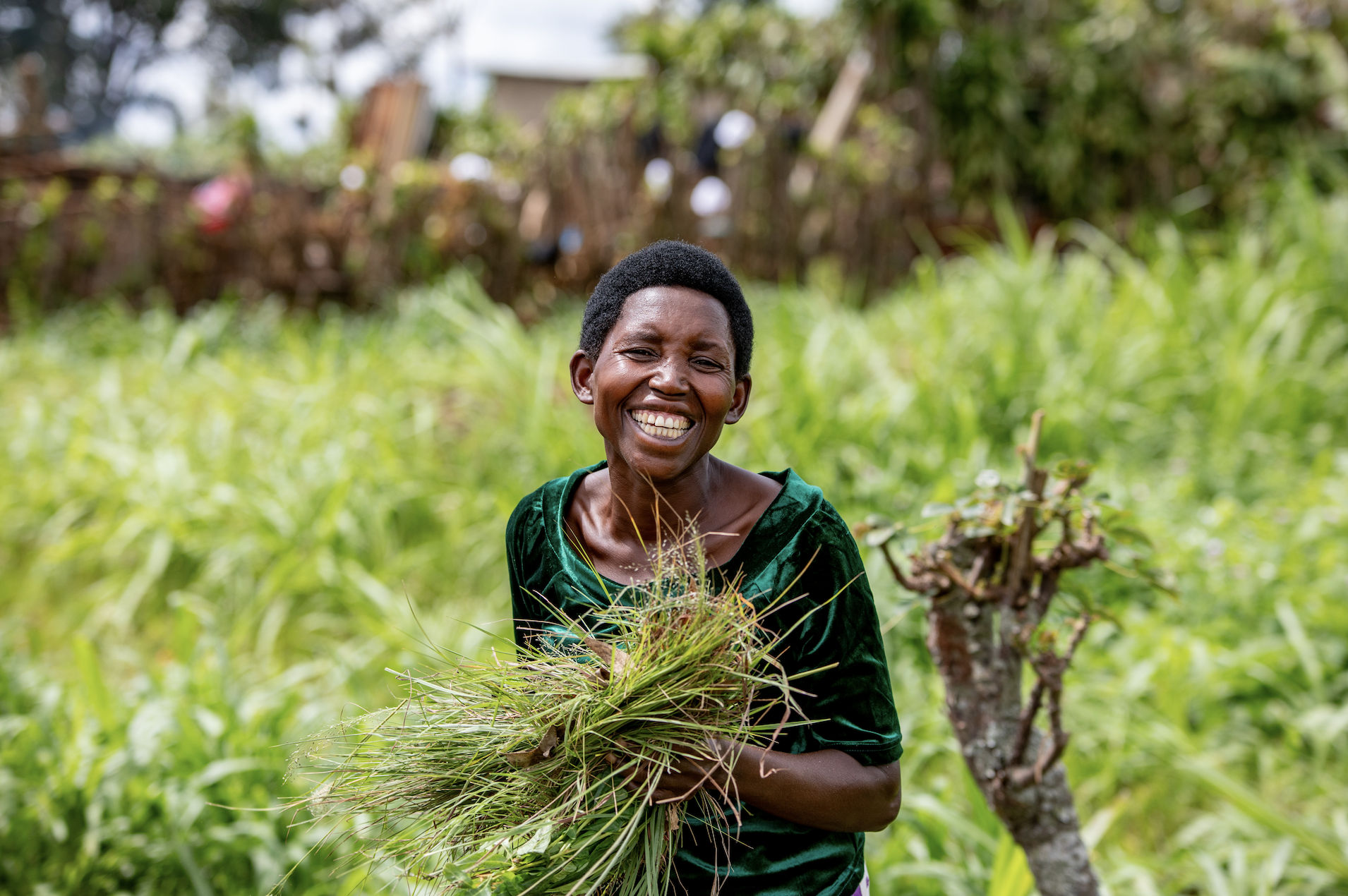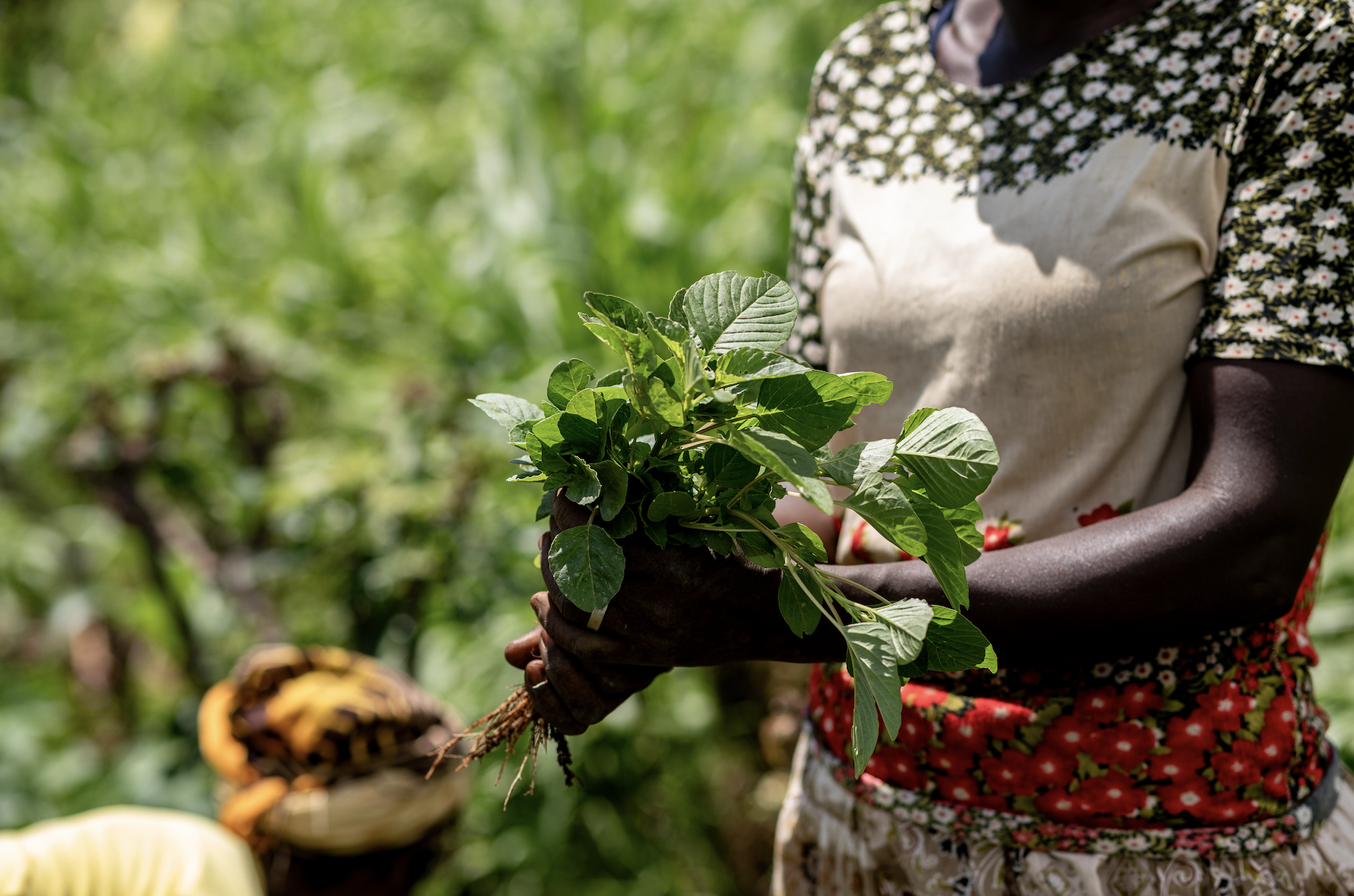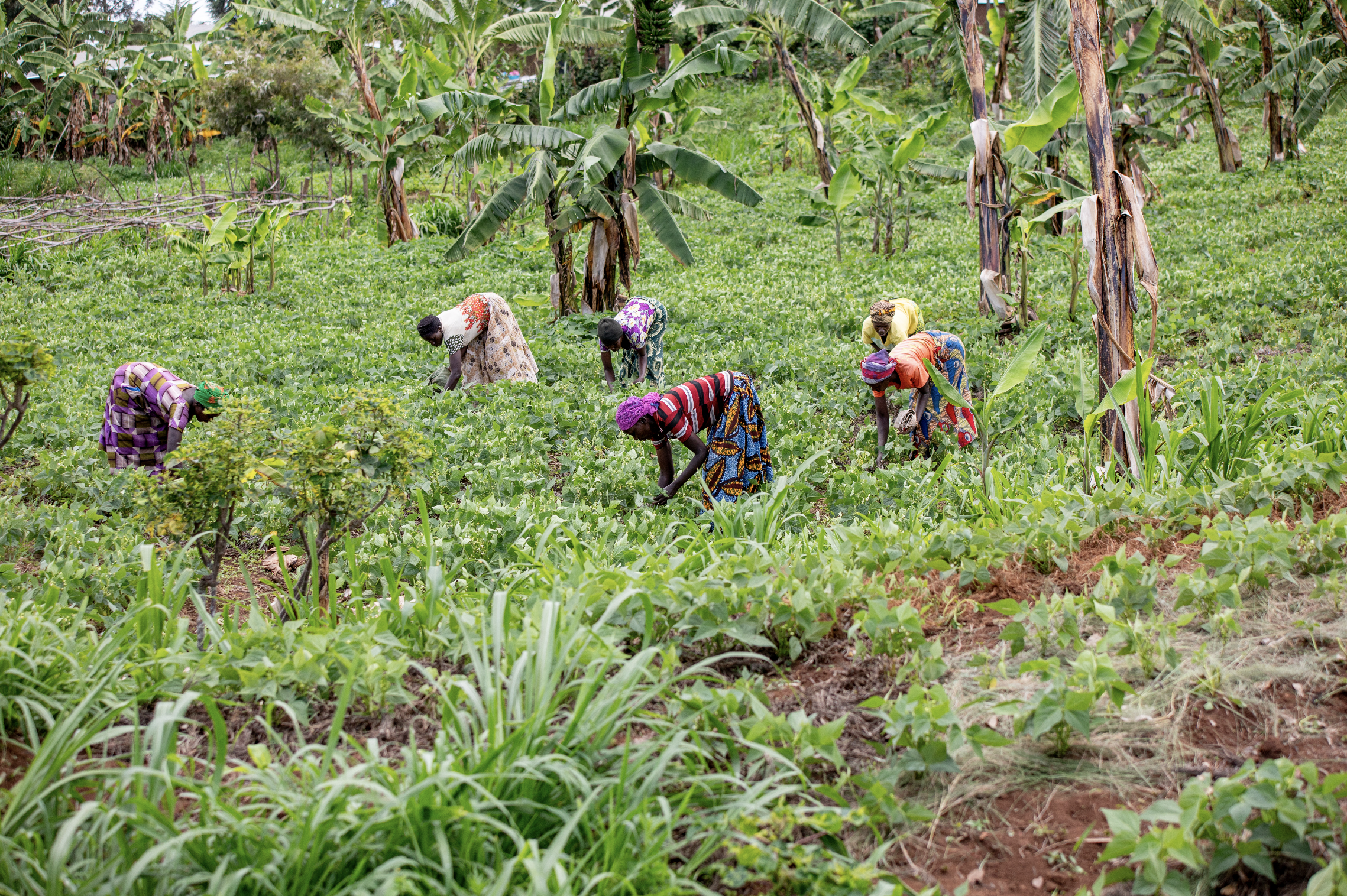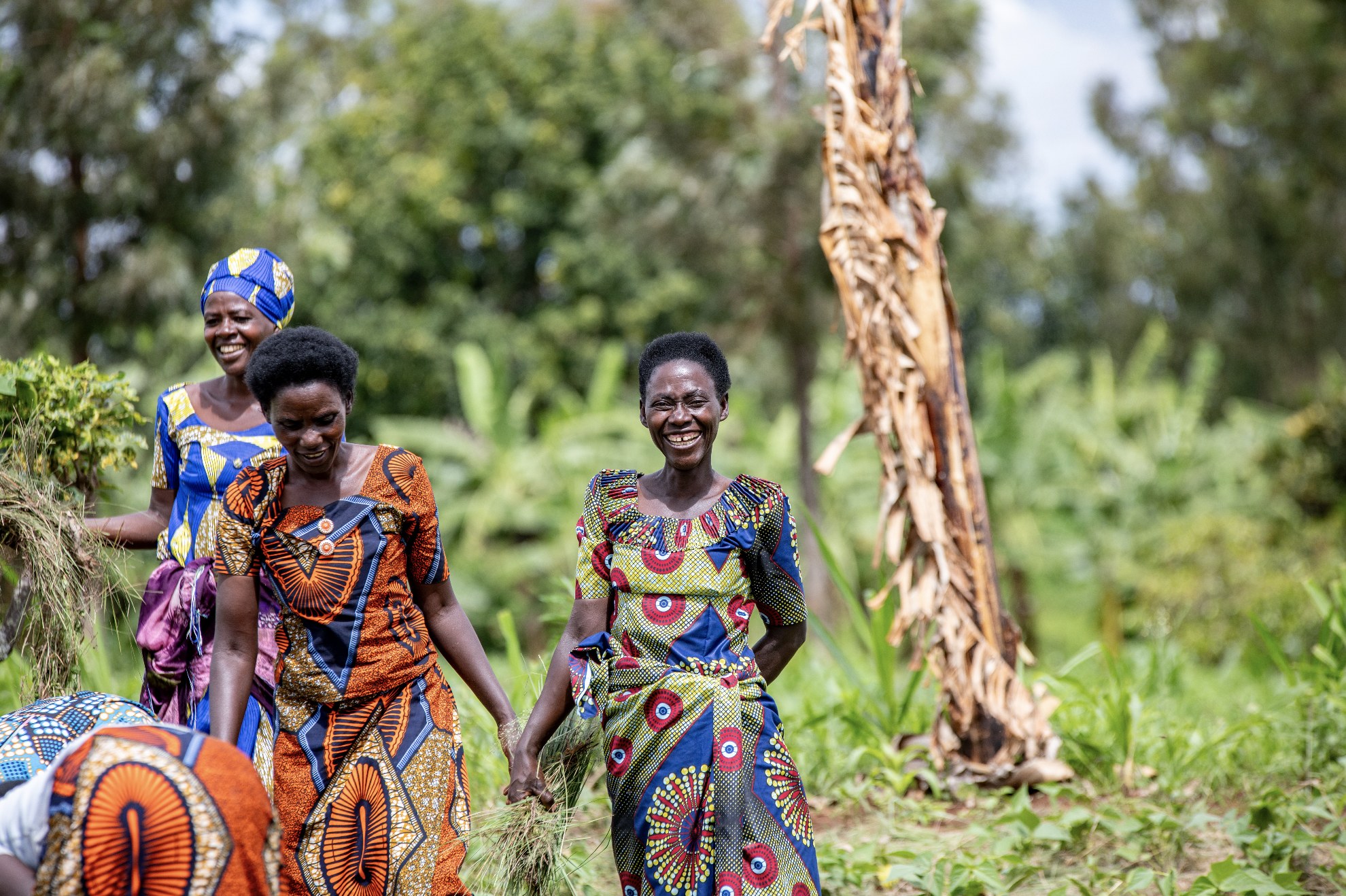Grounding Futures in the Soil
An Interview with David Niyonsaba,
Senior Agronomist for Land for Women
In Rwanda, where land ownership is often a barrier for women seeking economic independence, the Land for Women programme is creating transformative change. Designed as a poverty graduation model, the initiative supports women through land ownership, sustainable farming practices, and climate-conscious techniques. At its helm is David Niyonsaba, Office Manager and Senior Agronomist for the programme, whose experience spans over a decade in crop sciences, program management, and climate change negotiation.
In this interview, Niyonsaba offers insight into how Land for Women is reshaping lives, addressing economic disparity, and ensuring a sustainable future for communities in Rwanda.
Q: David, can you start by introducing yourself and the vision behind Land for Women?
David Niyonsaba:
Thank you. My name is David Niyonsaba, and I am the Senior Agronomist for Land for Women, a programme under the Legacy of War Foundation. Land for Women is designed as a poverty graduation model. We work with women in the lowest economic categories, equipping them with five key areas of support: land ownership, poverty reduction, environmental stewardship, economic empowerment, and climate adaptation.
Our approach begins with land ownership, which is transformative in itself. In Rwanda, land is not just an asset; it’s a source of identity, security, and long-term planning. For many women, owning land is a profound shift—it gives them confidence in society, access to financial resources like bank loans, and a sense of permanence.
Q: Why is land ownership so crucial for women in Rwanda?
Niyonsaba:
Land ownership is a game-changer. In Rwanda, it’s rare for women to own land, but when they do, it transforms their lives. Land provides a stable asset they can use for agriculture or as collateral for financial opportunities. It also allows them to plan for the long term, breaking cycles of dependence.
Before owning land, many women leased plots with no guarantee they could continue farming there. This uncertainty meant they often couldn’t invest in sustainable practices or think beyond immediate needs. With ownership, everything changes. They treat the land as theirs—not just for now, but for their children and future generations.
Q: How does Land for Women address poverty and food security?
Niyonsaba:
Poverty reduction is a core focus of the programme. Once women have land, we support them in generating income and growing food for their families. They use 75% of their land for commercial horticulture, producing crops they can sell to local and regional markets. The remaining 25% is dedicated to home gardens, which provide fresh food for personal consumption.
The result is twofold: they gain financial independence while ensuring food security for their households. Many women who once struggled to pay for school fees or health insurance are now sending their children to school and contributing to their communities.
Q: How does the programme incorporate environmental sustainability?
Niyonsaba:
Environmental and climate considerations are integral to everything we do. We train women to transition from chemical fertilizers to composting and to adopt sustainable farming techniques like crop rotation, land and water harvesting, and tree planting. These practices not only improve yields but also protect the environment and prepare the land for future generations.
When women understand that the land belongs to them, they become stewards of it. They treat it with care, knowing its health will sustain their families long-term. This shift from short-term use to long-term investment in the land is critical for resilience in the face of climate change.
Q: What has been the social impact of the programme?
Niyonsaba:
The social impact has been profound. Beyond financial independence, women gain confidence and a sense of agency. They become role models and take on leadership roles in their communities. Their success inspires others, creating a ripple effect of change.
For example, cooperatives are now able to feed their families, send their kids to school, and even provide jobs for neighbors. Women are no longer just farming—they’re building thriving ecosystems of support and collaboration.
Q: Can you summarize the overall vision of Land for Women?
Niyonsaba:
Land for Women is about breaking the cycle of dependence and creating lasting change. By giving women land and the tools to succeed, we’re building a foundation for economic independence, environmental stewardship, and community resilience.
The women we work with now see themselves as leaders and changemakers. They’re cultivating futures rooted in hope, stability, and sustainability.
The Land for Women programme is a testament to the power of land ownership and sustainable agriculture. Under David Niyonsaba’s guidance, the initiative is lifting women out of poverty, addressing climate resilience, and fostering a sense of ownership and community.
To learn more about the incredible work of Land for Women and the lives it’s transforming, explore our campaign ‘Sowing Seeds of Change’ and photojournalistic magazine showcasing these powerful stories.




